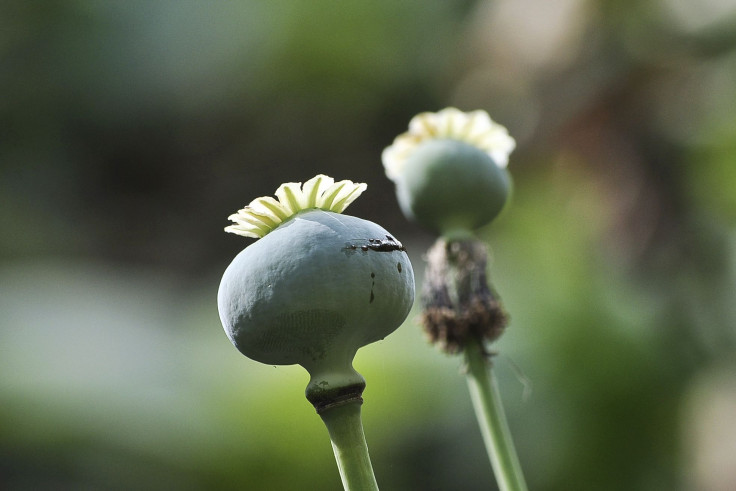Researchers Identify Poppy Gene That Produces Morphine, Sparking Fears Of 'Home-Brewed' Narcotics

A team of British and Australian scientists claim to have identified the gene that facilitates a poppy plant's production of morphine. The discovery could help scientists synthesize and manufacture opiate-based drugs in labs.
The opiate-producing gene, called STORR, was discovered as the scientists noticed the outcome of a few randomly mutated poppy plants. Three plants out of all the genetically mutated plants differed from the rest. On further study, the researchers found that those three plants showed the same gene mutation.
Even though the researchers are excited about the pharmaceutical aspect of the discovery, they fear that the discovery may also lead to production of illicit “home-brewed” narcotics.
Another team of scientists, from the University of California, has been trying to use genetically engineered yeast to turn sugar into morphine. The researchers believe that the discovery of the STORR gene will help them achieve their goal.
"The publication of this gene provides the missing link for the production of morphine in yeast -- there's no doubt about it," said Ian Graham, lead researcher of the team that discovered the STORR gene. "I think it's only a matter of time before there is a proof-of-concept demonstration in yeast that this can happen."
Opiates have been used for centuries to kill pain. The drug continues to be the most popular and most prescribed painkiller in the United States. Reuters estimates the annual global prescription sales of the drug to be around $12 billion.
The complete study has been published in the journal Science.
© Copyright IBTimes 2024. All rights reserved.




















